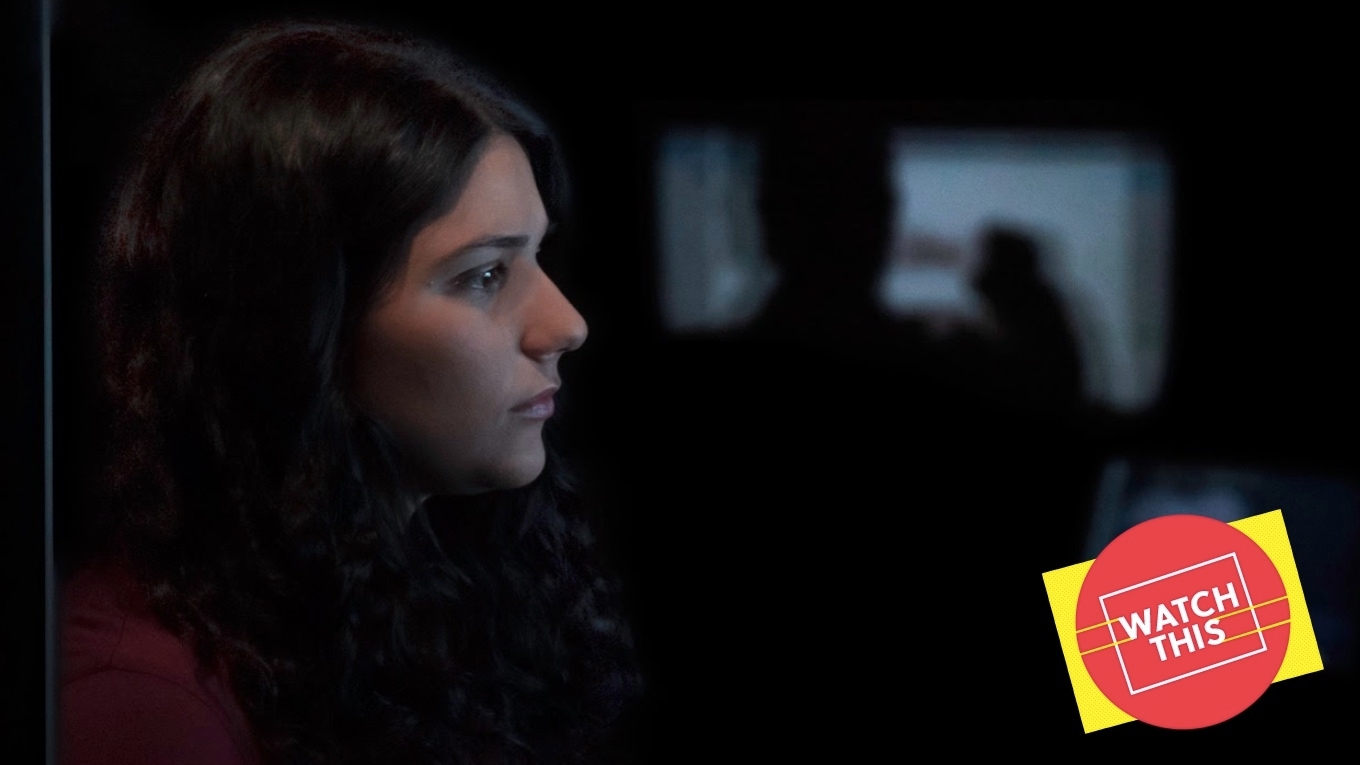The Viewing Booth is an illuminating depiction of a literal media bubble
The documentary illustrates, in close to real time, how people spin upsetting news into something that matches their political opinions

Watch This offers movie recommendations inspired by new releases, premieres, current events, or occasionally just our inscrutable whims. This week: One more time, we’re accounting for our sins of omission and looking back on the best movies of 2021 we didn’t review.
The Viewing Booth (2021)
In 2017, Israeli filmmaker Ra’anan Alexandrowicz enlisted a handful of college students for an experiment at Temple University. He constructed a viewing booth, and offered volunteers a selection of videos to watch, mostly showing images of Palestinians interacting with Israeli soldiers in the West Bank city of Hebron. Some of these clips were shot by human rights organizations, some by the citizens themselves, and some by the government. The students were allowed to pick their program, and were asked to process and talk about what they were seeing in real time, while Alexandrowicz filmed them.
Ultimately, Alexandrowicz decided to focus his documentary The Viewing Booth on just one of those students: Maia Levy, a young Jewish-American from a staunchly pro-Israel family. Why? Because Maia went beyond the assignment in riveting and rewarding ways, bringing in her own past research into the situations on the screen. She questioned the origins of the footage she was being asked to watch, and in so doing challenged even Alexandrowicz to think more deeply about how personal bias affects the ways we process information.
The Viewing Booth is short, running just 70 minutes, but it covers a lot of thematic ground with the help of its bifurcated structure. The documentary’s first part captures Maia as she watches scenes of children being awakened in the middle of the night and citizens being harassed by the military in the street. She goes through stages of sympathy and skepticism. At first she’s embarrassed that a government she supports could be responsible for human rights abuses. But then she circles back to wonder who was filming these scenes and why—and to speculate on what the Palestinians might have done before the camera started rolling to warrant getting pushed around by the authorities.
 Keep scrolling for more great stories.
Keep scrolling for more great stories.
